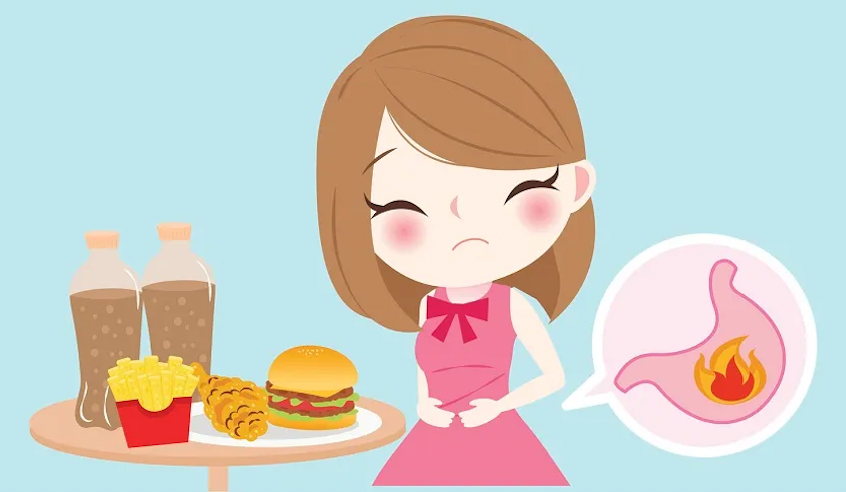Hacks to avoid holiday weight gain

Nov 22, 2022
A recent New England Journal of Medicine article showed the actual average weight gain is about 1–2 pounds. Not what you expected? I would guess most people believe they gain closer to 10 pounds over the holidays. If you base weight gain and loss solely on the scale and not on how your pants fit, then an impression of a drastic weight gain. Scale weight can fluctuate due to water retention from alcohol, salt, and carbohydrate intake rather than an actual true fat gain. The real story of holiday weight gain is the weight gain that occurs after the seemingly harmless habits begin, the stress some may feel from eating more or indulging, and a lower activity level due to family events and cold weather which force some indoors for most of the winter.
Hack #1: Eating hygiene
Eating hygiene is a practice that should happen at every single meal. Not only do the following principles help reduce overeating, but it also ensures adequate digestion which means no more bloating and belly pain. Begin the meal with a take 5 break. Before eating, take 5 deep, slow breaths in and out. You can call it a prayer or gratitude practice or just an opportunity to bring yourself to the present and to the meal you are about to eat. A take 5 break is a way to reduce stress and activate the parasympathetic nervous system which is critical for proper digestion. In fact, eating while stressed or in a rushed state can dramatically decrease stomach acid production and digestive enzymes, leading to early satiety, a feeling of fullness and pain, and bloating, gas, and burping, 3 things that nobody wants to experience while out with friends or during a family gathering.
Digestion begins in the mouth and is the only part of the digestive process that you have complete control over. The more you chew the food, we are talking until it’s mush, the less the stomach has to work to break down food. Chewing also aids digestion by stimulating digestive enzymes like salivary amylase that begins to work on breaking down food while it’s still in your mouth. Practicing chewing and savoring the food can even make carbohydrates taste sweeter the longer you chew.
Put the fork down! Putting down the fork means you are less likely to keep shoveling in the food without chewing and breathing. Stop thinking about the next bite and focus on what is in your mouth right now. Eating in a hurry is a stressor to the digestive tract all by itself and the simple act of keeping the fork by your plate between bites can decrease the fast pace of most meals and increase our parasympathetic nervous system.
Minimize liquids during meals for proper digestion. Liquids dilute stomach acid, making it less effective. Liquid beverages count as calories too and minimizing anything but water will help you avoid weight gain before, during, and after the holidays. Drinking copious amounts of water before a meal can also help with feelings of fullness and decrease the number of calories consumed. Take at least 20 minutes to eat. That means eliminating distractions and being present with the food on your plate. Eating while distracted can cause 10–15% more calories consumed.
Fast for at least 12 hours. Fasting can be an effective tool to lose weight and avoid weight gain and many people can respond well to it. How long you fast can vary for the individual. Men typically do well with 16 to 18 hours fasts. For women, I think the data is less clear on the right amount of time to fast. Some women may not do well at all with a longer fast. Twelve hours is a great place to start for most people and that allows the digestive system to fully recover from an eating window. We want our digestive systems to have a “rest” so we can activate the migrating motor complex which creates a cleansing wave in the intestines. This wave leads to a bowel movement as well as moves debris and waste from bacteria, toxins, and our own endogenous compounds down into the colon for elimination. You know what they say, good poop, good mood.

Hack #2: Create a healthy plate and skip the junk
What does it really mean to create a healthy plate? I am talking about a true balance of nutrients, not just macronutrients, but micronutrients like minerals, vitamins, fiber, polyphenols, carotenoids, and the list goes on. Reducing a plate to just fats, carbs, and proteins is a reductionist point of view and does not take into the fact that nutrients work synergistically in the body. When we focus more on incorporating colors, which represent different compounds, then we are creating a meal that contains all macro and micro minerals but also thousands of other compounds that science has yet to identify or even understand how those compounds work in the body together. It is not enough to focus on “fortified” foods that contain a scant few vitamins and minerals.
Why eat junk food or processed food you can find any day of the year? We all have family members who bring a bag of chips and dip or a store-bought bag of holiday cookies to the holiday gathering. Instead of eating something that wasn’t lovingly created in a kitchen, choose the foods you know were made with care and time. Although those foods still may contain sugar and excess calories, most likely they do not contain preservatives, fillers, binders, thickening agents, and a host of chemicals that come along with processed foods.
Stick to the 1 of 4 rule: choose 1 from the categories of bread, booze, dinner carbs like rice and potatoes, and dessert at a meal. I would much rather savor a slice of homemade cake or treat my mom made than extra bread or mashed potatoes. Plan this ahead of time, heck even write it down if you need to. Allowing yourself to have one of the items will likely keep you from bingeing on all 4.
If you are looking to curb hunger and increase satiey to lessen the temptation then make sure you eat at least 4 ounces of protein. Adding more protein first, especially for those of us who love carbohydrates, can fill you up, leaving less room for excess deserts.
Hack #3: Move More
One recent study evaluated the effect of 30 minutes of brisk walking after meals with different carbohydrate contents. Both sets of participants had lower blood glucose peaks throughout the two hour post-meal window. A quick pubmed serach brings up many more similar studies that observe a blood glucose lowering effect. This is good news. Rather than aiming for aggresive exercise and hour long sessions, simplly walking 3 times a day can have a dramatic effect on lowering blood sugar levels and improving insulin sensitivity.

We do know for sure that exercise by itself does not cancel out the stuffing and the pie. Research over the last few years have really thrown out the calories in and calories out model in response to exercise. Resistance training is one form of exercise that does not initially burn a substantial amount of calories; however, hours after a typical weight lifting session study participants have an increase in metabolic rate and calorie expenditure due to the adaptations that resistance training stimulates. The food/exercise math just doesn’t equate to an exact science and if you are one of those people that uses aggressive exercise to eat more, you may still be out eating your activity level.
Exercise can sometimes be used as a punishment rather than a time to move your body in ways that feel good and boost your mood. Looking at exercise through an entirely different lens throughout a typical busy season may just help you add more quality and quantity of movement to your day. Activities like playing a game of charades, having a dance party in the kitchen while cooking, or learning a new movement based skill like a lunge or a short sun salutation found in many yoga practices can keep your metabolism up and the weight off.
Hack #4: Stress versus planning a celebration
Stress reduction is probably the most important hack of all. Stress all on it’s own can cause weight gain and the holiday blues. Before the holidays hit, take a moment to plan your mark your calendar for time to take care of yourself and minimize event overwhelm. If you don’t want to go to an event, don’t go. That may seem like common sense to some, but if you are a people pleaser, saying no can be incredibly difficult. I give you permission to say no!
Have a plan. Always.
Before you leave the house consider eating a filling breakfast with 30 to 40 grams of protein or more and plenty of veggies. Drink lots of water before the celebration. Plan to have a good delicious meal and then don’t bring home the leftovers.
Remember, that gingerbread cookie is not the last cookie you will ever eat. Don’t use the holidays as an end-of-year clearance sell. Planning ahead for those foods will allow you to enjoy the holidays without the guilt.
Guilt=Stress=Weight Gain
Stress can cause us to overeat even when there are not extra goodies laying around. Stress can lead to numbing our emotions and thoughts and actually keep us from paying to attention to what is really at play in our lives. Regardless of what we eat, stress can cause weight gain. When our bodies reach that point, its not about thriving, it's about surviving. Getting quality sleep can reduce symptoms of anxiety and depression so don’t skip out of the 8 hours of rest no matter how many deadlines or late night parties crop up.
The full picture of holiday weight gain and weight gain in general is so much more than that one food. The holidays can be a gateway to more stress, less movement, and less than ideal habits that can cause even more stress, hormonal imbalance and then more weight gain. What can you do differently this winter? Maybe taking the guilt, shame and blame out of eating and create a list of foundational healthy habits you can do each day that will keep you from gaining the holiday bloat.
